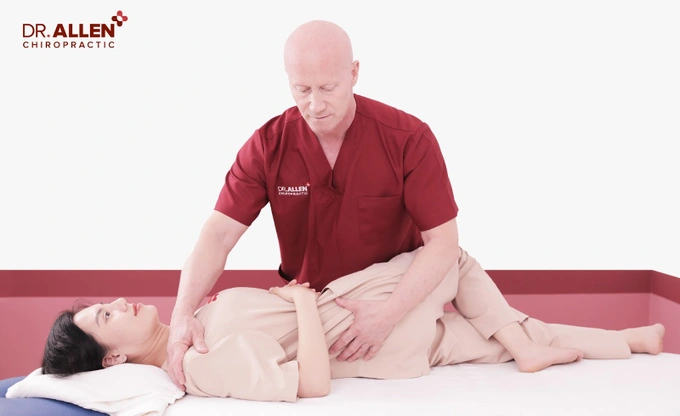The terms “bulging disc” and “herniated disc” are often used interchangeably; however, they are not synonymous. Both conditions involve the intervertebral discs of the spine, but they differ in their characteristics, causes, and symptoms. In this article, we will discuss the differences and similarities between bulging and herniated discs and explore their causes, symptoms, and treatment options.
Bulging Disc and Herniated Disc: The Differences
A bulging disc occurs when the outer layer of the intervertebral disc (the annulus fibrosus) expands or swells outward, causing a protrusion in the spinal canal or nerve root space.
In contrast, a herniated disc, also known as a ruptured or slipped disc, happens when the soft inner core of the disc (the nucleus pulposus) leaks or pushes through a tear in the annulus fibrosus. While both conditions can lead to nerve compression and pain, herniated discs typically cause more severe symptoms due to the greater degree of nerve involvement.
Can a Bulging Disc Become a Herniated Disc?
Yes, a bulging disc can progress to a herniated disc over time, especially if the underlying cause of the bulging disc is not addressed. As the annulus fibrosus continues to weaken and deteriorate, the nucleus pulposus may eventually push through the outer layer, leading to a herniated disc.
Difference Between Bulging Disc and Herniated Disc: Symptoms
Bulging disc symptoms can vary, but they generally include localized back or neck pain, stiffness, and muscle spasms. In some cases, a bulging disc may not cause any symptoms at all. Herniated disc symptoms, on the other hand, are often more severe and can include:
- Sharp, shooting pain in the neck, back, or extremities
- Numbness, tingling, or weakness in the arms or legs
- Sciatica, if the herniated disc is in the lumbar spine
Is a Bulging Disc the Same as a Herniated Disc?
While both bulging and herniated discs involve the intervertebral discs of the spine, they are not the same condition. A bulging disc is characterized by a swelling or expansion of the outer layer of the disc, while a herniated disc involves the leakage or protrusion of the inner core through a tear in the outer layer.
Treatment Options
Treatment for both bulging and herniated discs typically begins with conservative measures, such as:
- Rest and activity modification
- Over-the-counter pain relievers and anti-inflammatory medications
- Physical therapy and exercises to strengthen the muscles supporting the spine
- Chiropractic care or spinal manipulation
If conservative treatments are unsuccessful or if neurological symptoms worsen, more invasive options may be considered, such as epidural steroid injections or surgery.
Conclusion
Though often confused, bulging discs and herniated discs are distinct conditions with different causes and symptoms. Understanding these differences is crucial for accurate diagnosis and appropriate treatment. Both conditions can benefit from conservative treatments, such as medication, rest, and physical therapy. In more severe cases, invasive interventions may be necessary. Early diagnosis and appropriate treatment can help manage symptoms and prevent further complications, leading to improved overall spinal health.











